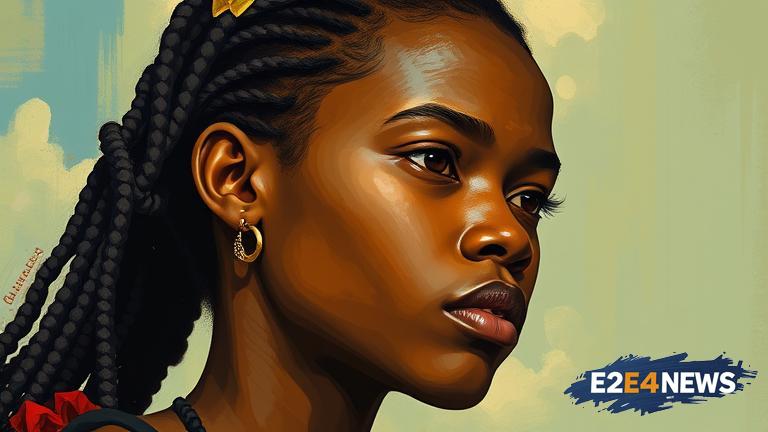In Kenya, coming out as queer is a perilous and potentially life-altering decision. The country’s conservative laws and societal norms make it challenging for individuals to openly express their sexual orientation or gender identity. Many Kenyans who identify as LGBTQ+ face significant risks, including social ostracism, violence, and persecution. The Kenyan government has been criticized for its handling of LGBTQ+ issues, with some officials openly expressing homophobic views. Despite these challenges, there are efforts underway to promote greater acceptance and understanding of LGBTQ+ rights in Kenya. Activists and advocacy groups are working to raise awareness and challenge discriminatory laws and practices. However, much work remains to be done to ensure that LGBTQ+ individuals in Kenya can live safely and openly. The consequences of coming out can be severe, with some individuals facing rejection from their families and communities. Others may experience violence or harassment, with some cases resulting in serious injury or even death. The Kenyan media has also been criticized for its sensationalized and often homophobic coverage of LGBTQ+ issues. This can perpetuate negative stereotypes and contribute to a culture of intolerance. In recent years, there have been some positive developments, including the establishment of LGBTQ+ support groups and organizations. These groups provide a safe space for individuals to connect with others who share similar experiences and challenges. However, these efforts are often hindered by limited resources and a lack of support from the government and wider society. The international community has also been urged to do more to support LGBTQ+ rights in Kenya. This includes providing funding and technical assistance to local organizations and advocacy groups. Additionally, diplomatic pressure can be brought to bear on the Kenyan government to promote greater respect for human rights and the rule of law. Ultimately, creating a safer and more inclusive environment for LGBTQ+ individuals in Kenya will require a sustained and collective effort. This includes challenging discriminatory laws and practices, promoting greater awareness and understanding, and supporting the work of local activists and advocacy groups. By working together, it is possible to create a more just and equitable society for all Kenyans, regardless of their sexual orientation or gender identity. The journey towards greater acceptance and inclusion will not be easy, but it is a necessary step towards creating a more compassionate and humane society. As Kenya continues to grapple with the challenges of promoting LGBTQ+ rights, it is essential to recognize the courage and resilience of individuals who come out as queer in the face of adversity. Their stories and experiences serve as a powerful reminder of the need for greater acceptance and understanding. By sharing their stories and amplifying their voices, we can help to create a more just and inclusive society for all. Furthermore, it is crucial to address the root causes of homophobia and transphobia in Kenya, including cultural and religious attitudes that perpetuate discrimination and violence. This requires a nuanced and multifaceted approach that takes into account the complex social, economic, and political context of the country. Moreover, the role of social media and online platforms in promoting LGBTQ+ rights and awareness cannot be overstated. These platforms provide a critical space for individuals to connect, share their experiences, and mobilize support for the LGBTQ+ community. However, they also pose significant risks, including online harassment and persecution. To mitigate these risks, it is essential to develop strategies for promoting online safety and security, including the use of encryption and other digital security tools. In conclusion, coming out as queer in Kenya is a complex and often perilous process. While there are efforts underway to promote greater acceptance and understanding, much work remains to be done to ensure that LGBTQ+ individuals can live safely and openly. By working together and supporting the work of local activists and advocacy groups, we can help to create a more just and inclusive society for all Kenyans.





